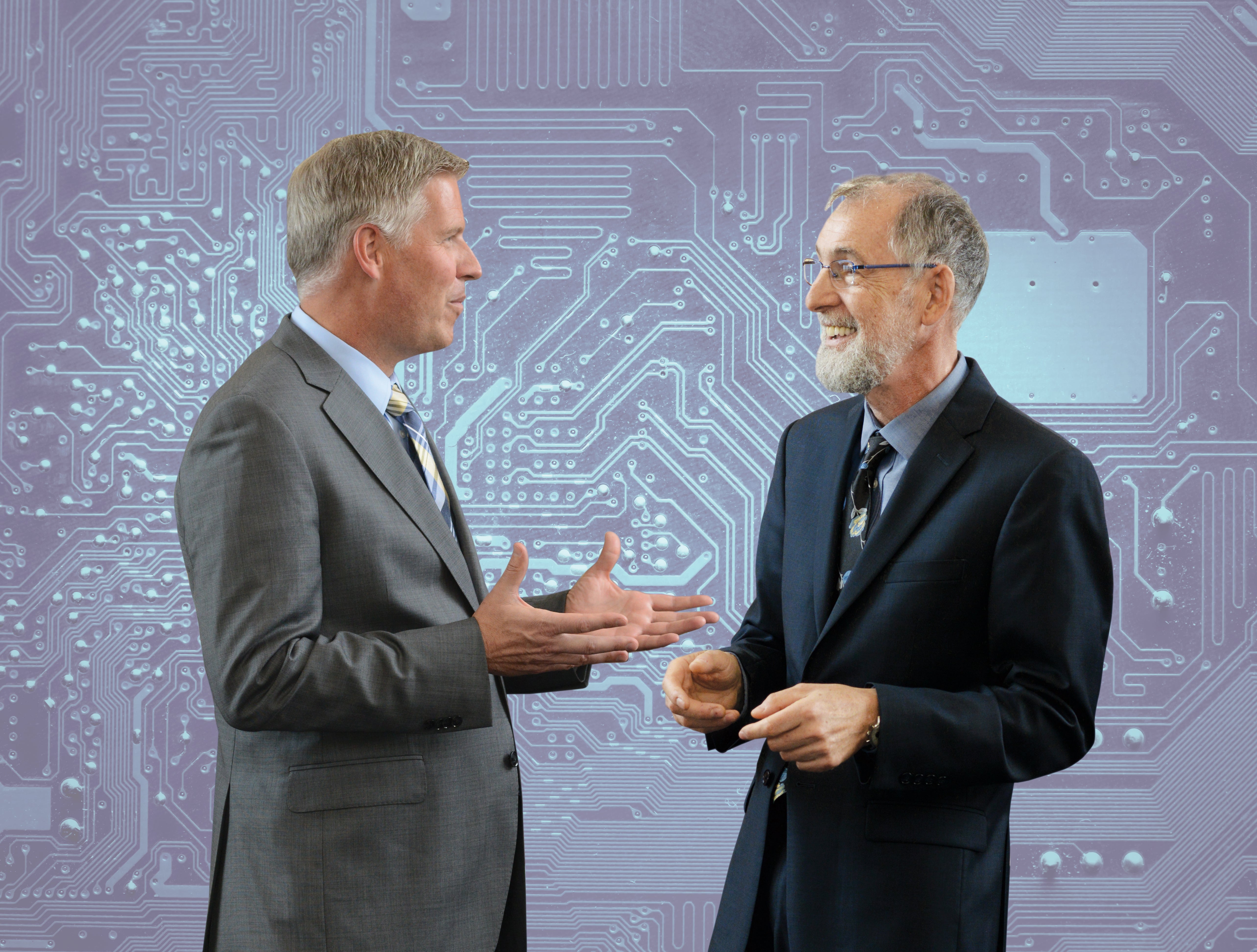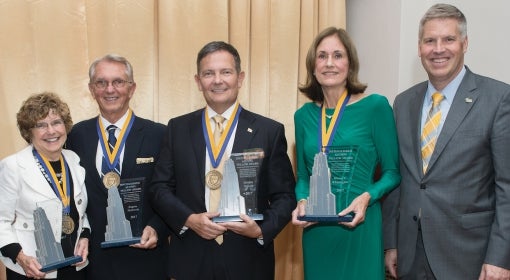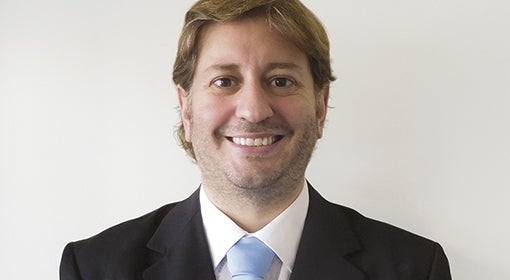
Chancellor Pat Gallagher connects with Paul Cohen, the founding dean of the School of Computing and Information, which is the first school established at Pitt in more than two decades. A leading authority on artificial intelligence and education informatics, Cohen previously developed the World Modelers Program for the Defense Advanced Research Projects Agency (DARPA).
Gallagher: It’s not too often that a new dean is also leading a new school. What’s your vision for the School of Computing and Information?
Cohen: We intend to change education in a big way. I want to create a generation of polymathic students—students who can walk into any lab, dance studio, factory floor, or hospital and immediately understand what’s going on in computational terms. We create polymaths by teaching the concepts that different fields have in common. It’s a return to the liberal arts ideal of the generally educated person, updated for the Information Age.
I also want to emphasize systems-oriented research. The world’s big systems are being stressed by population growth and climate change, while the body’s biological systems are being mapped, giving rise to new therapies. Computing is indispensable to modeling and managing these systems, and we want to do our part.
Gallagher: Your field is known for changing quickly. How do you approach teaching such dynamics subjects and not run the risk of being immediately out of date?
Cohen: Technology is ephemeral, so we teach the lasting principles behind the technologies. For example, many machine learning techniques are tuned to a single problem: classifying input into one of several categories. Are these cells healthy or cancerous? The particular technologies will come and go, but the principles—the underlying mathematics of classification—persist.
Gallagher: The information and data areas represent one of the hottest job markets. How should Pitt students expect to be prepared for these opportunities?
Cohen: They should expect a technically demanding education where they learn about programming and security and data science, among other things. But they should also learn, or relearn, curiosity. As data science becomes increasingly algorithmic, the skills of preparing and interpreting data are being lost. Regaining them begins with curiosity, with asking “Why?”
Gallagher: Where would you like to see the School of Computing and Information in five years?
Cohen: World leadership in systems-oriented research and polymathic education, with deep research connections across campus and the broader community, without compromising the essential warmth and humanness of the place.
This article appeared in the Winter 2018 issue of Pitt Magazine.




